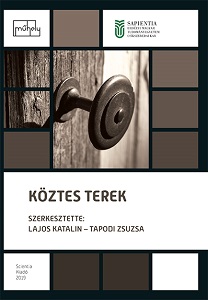A pragmatika és a fordítástudomány köztes terei (a japán-magyar nyelvpár viszonylatában)
Spaces in Between Pragmatics and Translation Studies (with Special Regard to Translations from Japanese to Hungarian)
Author(s): Júlia Somodi
Subject(s): Language and Literature Studies, Translation Studies
Published by: Scientia Kiadó
Keywords: Japanology; pragmatics; translation studies; vocatives;
Summary/Abstract: Many studies have highlighted the fact that pragmatics plays an important role in translation and translation studies (Klaudy 2017, Colina 2015). This is not a coincidence since in the case of pragmatics focus is placed on the language user, and it investigates the speaker’s meaning (Szili 2004). Meanwhile, in translation studies, the focus is on texts produced by people and the reproduction of these texts in the target language. Thus, it is not enough to rely on the literal meaning of the utterance (locution), but the intended meaning (illocution) must also be conveyed. The utterance produced in the target language must have the same effect as the one in the source language. The presentation will focus on the relation between pragmatics and translation studies. Based on examples gained from audiovisual translations, the presentation is going to examine the pragmatic functions of vocatives in source-text utterances as well as in the translation of the same utterances. I am looking for answers to (1) what are those problematic pragmatic factors in translation that should be discussed in translation practice courses as well? and (2) are fansubbers aware of the importance of the pragmatic functions of certain utterances? The presentation not only discusses the contribution of pragmatics to translation studies, but it shows that translation studies can also help language users by raising their awareness regarding the pragmatic functions of utterances.
Book: Köztes terek (2019. április 26–27., Csíkszereda)
- Page Range: 419-436
- Page Count: 18
- Publication Year: 2020
- Language: Hungarian
- Content File-PDF

